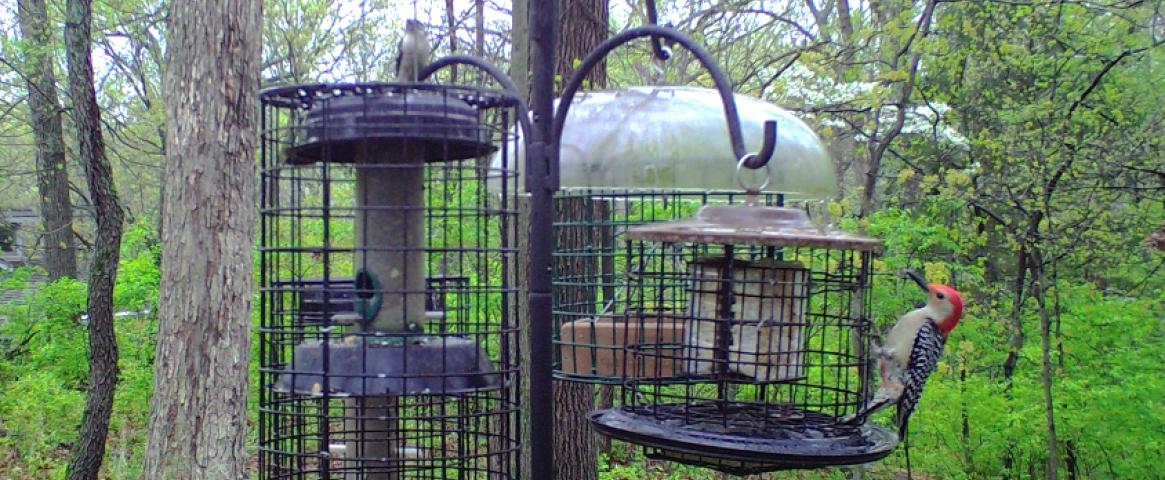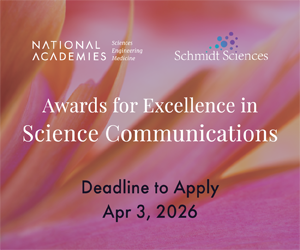By Barb Kuensting. Mentored and edited by Ariana Remmel.
What we know about our natural world is likely influenced by racial biases, says North Carolina State Ph.D. student Deja Perkins.
Citizen science projects that allow anyone to submit observations of the natural world with mobile apps have gained prominence in recent years. This gives scientists unprecedented access to global datasets that provide new insights into ecosystem interactions. But these projects may hide unexamined racial biases, Perkins said.
Community science fails to portray an accurate view of the ecosystems of non-white spaces because white people are contributing an outsized portion of observations to public datasets, she said said during a presentation at the annual meeting of the American Association for the Advancement of Science on 18 February 2022.
To investigate, Perkins analyzed observations reported to three large-scale citizen science projects called eBird, iNaturalist, and CoCoRaHS. Mobile apps for these projects allow volunteers to record data regarding birds, wildlife, and precipitation, respectively. She then measured the number of contributors from varying demographics and locale of observations in each.
Perkins found that the number of locations in which non-white citizen scientists were observing birds with eBird were far smaller than compared to white people, and the density of birds observed in a given area averaged at zero in majority non-white communities.
When controlling for income levels, regions with predominantly white residents consistently contributed more observations than non-white communities. This was especially noticeable in low-income regions where the number of observations by white contributors was 43% higher than in comparable areas with almost double the number of non-white contributors.
Perkins found similar data discrepancies in iNaturalist and CoCoRaHS. Across all three apps, the participation gap was significantly higher in urban settings compared to non-urban settings.
"Volunteer data have race-based bias with overrepresentation of wealthy, white spaces and underrepresentation of non-white and non-wealthy spaces,” Perkins said. “It really skews the picture of what we know about the landscape and where we think we should apply management and where we might implement policy decisions,” she said.
Chris Hawn, an ecologist researching environmental justice at the University of Maryland, presented similar findings to Perkins when studying the nonprofit Falling Fruit – a campaign to build a global fruit tree database to educate low-income communities of free food available.
“We are not having the big impact that we want because we’re really only able to reach white audiences,” Hawn said.
Research presented by anthropologist Valerie Johnson at Shaw University in the same session suggests that the language used to describe this type of data collection could influence inclusion and diversity in community science spaces.
“We found that among all the groups that participated in [our] study, ‘citizen science’ was considered neutral across all the groups,” Johnson said. Among non-white and non-citizen groups in the United States, the terms ‘participatory science’ and ‘community science’ were favored. The study suggests that community members should be involved in the decision for which term to use, which could help to lower barriers to participation.
Perkins ended the session with a call to action. “Approach citizen science research with an environmental justice lens, recognizing that some people are more severely and immediately impacted by environmental degradation than others,” she said.
Barb Kuensting is a senior at the University of Missouri - Columbia studying documentary journalism and biology. She is interested in topics relating to environmental justice, birds and climate change. Email her at barbkuensting@gmail.com or check out her work at https://www.barbkuensting.com.
Photo: Citizen science projects like eBird allow people to log observations of bird species to global datasets, such as this Red-bellied woodpecker and Tufted titmouse. Credit: Barb Kuensting



